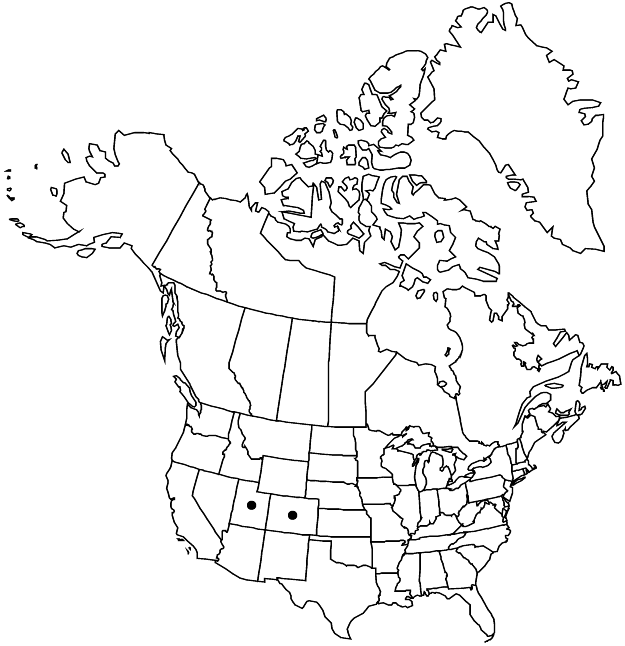Difference between revisions of "Eriogonum tumulosum"
Phytologia 23: 173. 1972.
FNA>Volume Importer |
(No difference)
|
Revision as of 21:24, 26 July 2019
Herbs, matted, scapose, 0.01–0.1 × 1–4 dm, villous to silky-tomentose, greenish. Stems matted, with persistent leaf bases, up to 1/5 height of plant; caudex stems matted; aerial flowering stems scapelike, erect, slender, solid, not fistulose, 0.01–0.1 dm, villous to silky-tomentose. Leaves basal, fasciculate in terminal tufts, or cauline, 1 per node, sheathing nearly entire length of stem; petiole 0.04–0.07 cm, silky-tomentose; blade oblanceolate to elliptic, 0.3–0.4 × 0.07–0.1 cm, margins plane or slightly thickened. Inflorescences capitate, 0.5–0.8(–1) cm; branches absent; bracts 4–5, semileaflike, linear-lanceolate to lanceolate, 2.5–3.5 × 0.3–0.4 mm. Peduncles absent. Involucres 1 per node, campanulate, 2–4 × (4–)5–8 mm, rigid, tomentose; teeth 7–10, spreading, 1.6–2.2 mm. Flowers 3–4 mm; perianth white to rose, pilose; tepals connate proximal 1/4, monomorphic, oblong; stamens exserted, 3–4 mm; filaments glabrous. Achenes light brown, 2–2.5 mm, glabrous.
Phenology: Flowering May–Jul.
Habitat: Gravelly to clayey flats and slopes, saltbush and sagebrush communities, pinyon and/or juniper woodlands
Elevation: 1500-2300 m
Discussion
Eriogonum tumulosum is infrequent in Duchesne, Emery, eastern Sevier, and Uintah counties, Utah, and in western Moffat County, Colorado. It is often confused with Parthenium ligulatum (M. E. Jones) Barneby (Asteraceae); they grow together and both form dense hummock-like mats. Woodside wild buckwheat is seen infrequently in rock gardens.
Selected References
None.
